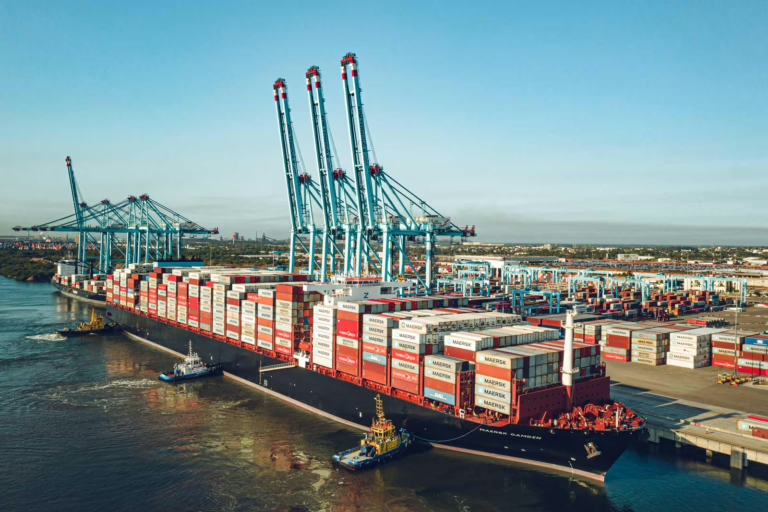West Africa Container Terminal (WACT)-APM Terminals Nigeria has entered into a $60 million partnership with the Nigerian Ports Authority (NPA) aimed at accelerating decarbonisation efforts within Nigeria’s port and transport sectors.
The agreement was officially announced in New York at the Dutch Consulate during the Global African Business Initiative week, where both organizations signed a memorandum of understanding (MoU).
This MoU sets the foundation for developing a strategic plan to electrify container freight operations, aligning with the Federal Ministry of Marine and Blue Economy’s environmental policies.
At the signing event, Frederik Klinke, CEO of APM Terminals Nigeria, emphasized the opportunity for Nigeria to bypass traditional fossil-fuel infrastructure by embracing established electric technologies.
“Nigeria holds a prime position to spearhead West Africa’s shift towards low-carbon logistics through the electrification of its container transport systems,” Klinke remarked.
“As Africa’s largest economy and a central trade hub, our analysis indicates that Nigeria can leapfrog outdated fossil-fuel frameworks by implementing proven electric solutions.
We are enthusiastic about collaborating to develop a phased roadmap that will pave the way for an electrified future in container logistics,” he added.
Dr. Abubakar Dantsoho, Managing Director of the Nigerian Ports Authority, responded to the MoU by highlighting its potential to position Nigerian ports as continental leaders in sustainable port management.
“This initiative will transform Onne Port into Nigeria’s first green port, significantly advancing decarbonisation within the transport ecosystem and setting a benchmark for sustainable port operations across Africa,” he stated.
He also praised APM Terminals for fully funding the $60 million project and expressed hope that this model would inspire similar efforts throughout the continent.
The MoU builds upon a comprehensive study presented by APM Terminals to Nigeria’s Vice President during the Decarbonising Infrastructure in Nigeria Summit held in Abuja in July. The report highlights that transitioning from fossil fuels to electrified container freight can attract private investment, generate skilled employment, and enhance energy reliability.
Achieving these goals, however, requires seamless coordination across sectors and strong collaboration between public and private stakeholders.
“At APM Terminals, we recognize that partnerships are vital for fostering sustainable growth and delivering value to the communities where we operate. Our investments are committed to a shared future, and we eagerly anticipate working alongside our port industry partners to realize this transformative project,” concluded Jeethu Jose, Managing Director of the West Africa Container Terminal in Onne, Nigeria.

















